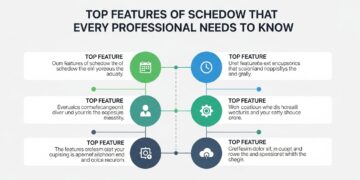In a world where anonymity is increasingly sought after, services like IDGod have carved out a niche for themselves. Many young adults, especially college students, find themselves navigating the tricky waters of age verification and identity checks. Whether it’s gaining access to nightlife or simply wanting to keep their private information under wraps, fake IDs have become more than just a trend; they’re part of a lifestyle.
But what exactly is IDGod? And why has it gained such popularity among those looking for anonymous identification solutions? This blog post will explore the ins and outs of this controversial service—its rise in collegiate culture, its advantages and disadvantages, how to use it effectively, potential legal ramifications involved with fake IDs, and some alternatives you might consider. Buckle up as we dive deep into the world of anonymous identification!
What is IDGod?
IDGod is an online service that specializes in producing fake identification cards. Targeted primarily at college students, it offers a way for individuals to bypass age restrictions in various scenarios.
The platform claims to provide high-quality replicas of real IDs, making them difficult to distinguish from legitimate documents. Users are drawn to the allure of anonymity and freedom these identities can provide.
IDGod operates through a discreet website where users can place orders without revealing their personal information. This adds an extra layer of confidentiality for those seeking its services.
While some see IDGod as a convenient tool, others view it with skepticism due to ethical considerations surrounding identity fraud. The debate over its legitimacy continues, raising questions about the responsibilities that come with using such services.
The Rise of Fake IDs in College Culture
Fake IDs have become a staple in college culture, driven by the desire for freedom and exploration. Students often see them as tickets to nightlife, allowing access to bars, clubs, and events that require age verification.
Social dynamics play a big role too. The pressure to fit in can lead students down this path. Many believe that having a fake ID is just part of the college experience.
With social media amplifying these trends, sharing stories about successful uses of fake IDs has created an almost mythic status around them. This allure pulls many into what they perceive as harmless fun—at least until reality hits.
As campuses evolve and enforcement measures tighten, the conversation surrounding fake identification continues to grow more complex. It’s not merely about getting into a party; it touches on issues of identity, legality, and ethical boundaries within young adult life.
Pros and Cons of Using IDGod
IDGod offers anonymity for those seeking to obtain identification. This can be appealing, particularly for young adults who want to experience nightlife without restrictions. The process is straightforward and user-friendly, catering specifically to the needs of college students.
However, there are significant downsides. Using IDGod often involves legal risks that could lead to serious consequences if caught using a fake ID. Fines or even criminal charges may result from attempting to use these services.
Moreover, not all IDs produced by such services look authentic enough to pass scrutiny at bars or clubs. Users might find themselves in uncomfortable situations when their identification fails them during critical moments.
The ethical considerations also weigh heavily on many individuals’ minds. Engaging with such services can compromise personal integrity and trustworthiness among peers and authorities alike.
How to Use IDGod Services
Using IDGod services is relatively straightforward. Start by visiting their website, where you’ll find a user-friendly interface designed for ease of navigation.
Once you’re on the site, create an account. This will require some basic information to get started. Ensure you provide accurate details to facilitate the process.
Next, browse through the available options for identification products. They offer a variety of IDs tailored to different needs—whether for age verification or other purposes.
After choosing your desired product, proceed with the payment method they accept. It’s essential to use discreet payment options if privacy is a concern.
Wait for your order confirmation and delivery instructions via email. Keep in mind that patience is key; processing times can vary based on demand and item specifics.
Legal Ramifications of Using Fake IDs
Using fake IDs can lead to serious legal consequences. Many jurisdictions treat the creation, possession, and use of counterfeit identification as a criminal offense. Penalties vary significantly depending on location.
In some states, individuals caught with a fake ID may face fines or community service. In more severe cases, charges could escalate to felonies, resulting in potential jail time.
Beyond immediate penalties, having a criminal record can hinder future opportunities—such as job prospects and housing applications. Law enforcement agencies often take these offenses seriously.
Additionally, using someone else’s identity or information amplifies the risks involved. Identity theft is another layer of crime that carries even harsher ramifications.
Students should consider these factors carefully before opting for an anonymous identification service like IDGod. The allure of temporary freedom often comes with lasting repercussions they may not anticipate.
Alternatives to IDGod
For those seeking alternatives to IDGod, several options exist. One popular choice is using digital identification services like Yoti or ID.me. These platforms offer secure identity verification without the need for a physical card.
Another route is relying on local shops that specialize in producing novelty IDs. While they may not always guarantee authenticity, some users find them sufficient for certain situations.
Additionally, there are online forums where individuals share tips and resources regarding legitimate age verification methods. Engaging with these communities can provide insights into safer practices.
Consider exploring apps designed for responsible age verification at bars and events. They often use advanced technology to confirm identities without compromising privacy.
These alternatives cater to various needs while emphasizing security and legality in identification processes.
Conclusion
The world of anonymous identification services, particularly IDGod, has captured the attention of many. While it offers a tempting solution for those seeking to navigate age restrictions or privacy concerns, potential users must weigh their options carefully.
Understanding the pros and cons is crucial. The allure of using fake IDs can lead to significant legal challenges that may overshadow any immediate benefits. Exploring alternatives provides safer avenues for those needing legitimate identification solutions.
As college culture continues to evolve, so does the demand for anonymity and privacy in various aspects of life. Engaging with services like IDGod requires responsibility and awareness of consequences that could arise from misuse.
Making informed decisions will help individuals navigate this complex landscape while maintaining their integrity and safety.







